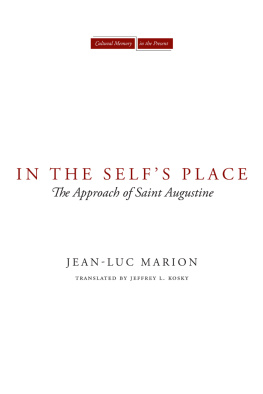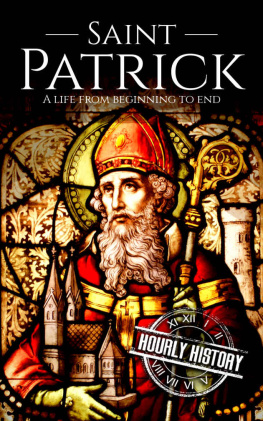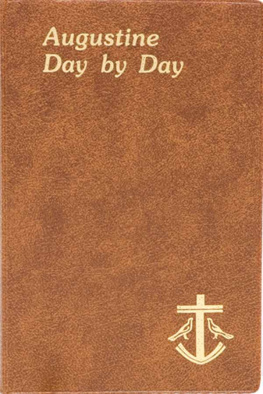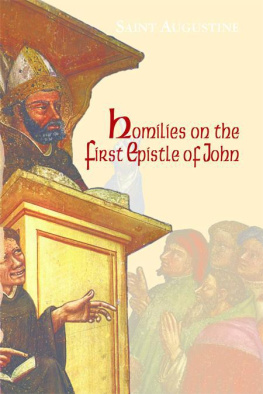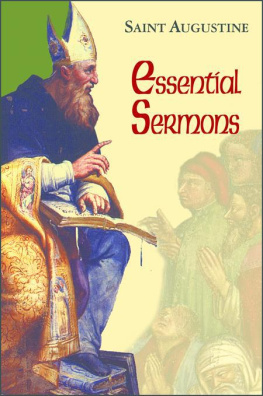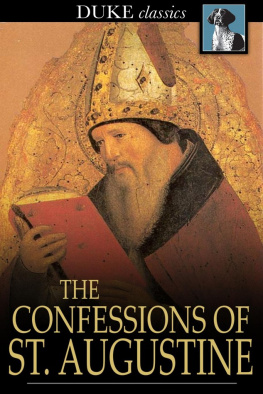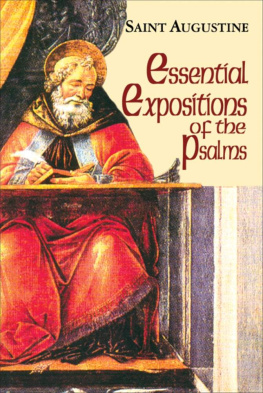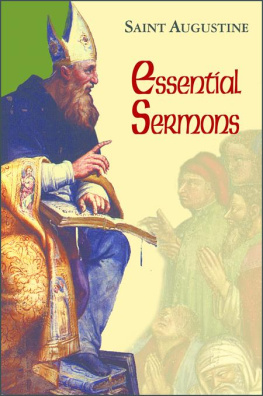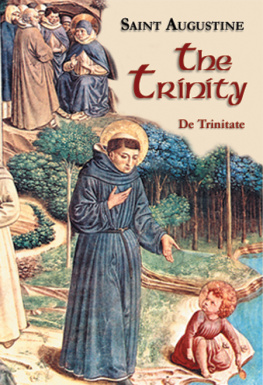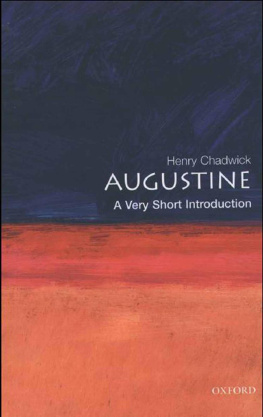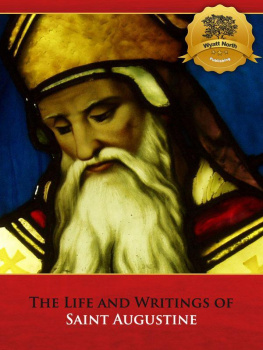Cultural Memory in the Present
Mieke Bal and Hent de Vries, Editors
IN THE SELFS PLACE
The Approach of Saint Augustine
Jean-Luc Marion
Translated by Jeffrey L. Kosky
STANFORD UNIVERSITY PRESS
STANFORD, CALIFORNIA
Stanford University Press
Stanford, California
English translation 2012 by the Board of Trustees of the Leland Stanford Junior University. All rights reserved.
In the Selfs Place was originally published in French in 2008 under the title
Au lieu de soi 2008, Presses Universitaires de France.
Ouvrage publi avec le concours du Ministre franais charg de la cultureCentre national du livre.
This book has been published with the assistance of the French Ministry of CultureNational Center for the Book.
No part of this book may be reproduced or transmitted in any form or by any means, electronic or mechanical, including photocopying and recording, or in any information storage or retrieval system without the prior written permission of Stanford University Press.
Printed in the United States of America on acid-free, archival-quality paper
Library of Congress Cataloging-in-Publication Data
Marion, Jean-Luc, 1946 author.
[Au lieu de soi. English]
In the selfs place : the approach of Saint Augustine / Jean-Luc Marion ; translated by Jeffrey L. Kosky.
pages cm. (Cultural memory in the present)
Originally published in French in 2008 under the title Au lieu de soi.
Includes bibliographical references and index.
ISBN 978-0-8047-6290-8 (cloth : alk. paper)
ISBN 978-0-8047-6291-5 (pbk. : alk. paper)
ISBN 978-0-80478-562-4 (e-book)
1. Augustine, Saint, Bishop of Hippo. 2. Self (Philosophy). I. Title. II. Series: Cultural memory in the present.
BR65.A9M32713 2012
233.5dc23
2012002072
In memory of Jean-Marie Lustiger
Hierdas meint diese Hand, die ihr hilft, es zu sein.
Herethat means this hand that helps you to become.
PAUL CELAN
Foreword
This book might seem to respond to a necessity manifested long ago in the itinerary of those that preceded it. For, if one starts out from Descartes in order to broach the question of the status of metaphysics, establish its constitution, and mark its separation from Christian theology, how can one not end up returning to Saint Augustine, an obligatory reference, whether it be accepted or denied, for the entire seventeenth century? Yet the necessity, if there was one, was entirely other: the somewhat more precise identification of metaphysics attained by studying Descartes led, beyond the question of his sources, references, and context, to an investigation into the limits of metaphysics and a glimpse of their possible transgression. Now this question is posed more obviously in the terms of phenomenology than in those of the history of philosophy: if one wants to leave behind generalities, that is to say approximations, indeed ideological distortions, it is necessary to discover phenomena, describe them, and recognize those that make an exception, partially or radically, to the objectivity and beingness practiced by metaphysics. This work led only to sketching a phenomenology of givenness, phenomena as given, in particular saturated phenomena, including even the erotic phenomenon, in which Saint Augustine did not yet play a part.
It took chance, then, for this necessity to present itselfmore exactly, for Saint Augustine to appear suddenly as the privileged interlocutor and, in a sense, inevitable judge, of the project of accessing phenomena irreducible to the objects and beings of metaphysics. This chance, or rather this fortunate occasion, came from the Conseil scientifique de la Chaire Gilson, which the Faculty of Philosophy at the Institut Catho-lique de Paris had set up more than ten years ago, when it did me the great honor of inviting me to deliver the six lectures anticipated for 2004. When it came time to set the theme of this series, I hesitated to take up what had been the theses of my more recent works, in particular tant donn (1996), De surcrot (2001), and especially Le phnomne rotique (2003), in the fear of wearying my listeners and boring myself, too. I preferred, therefore, to risk another course: read and interpret the Confessions of Saint Augustine in a resolutely nonmetaphysical mode, by using to this end the major concepts that I had just elaborated in a logic of radically phenomenological intent. The stakes of this project were in my eyes twofold. First, it would test the hermeneutic validity of the concepts givenness, saturated phenomenon, and the gifted, by applying them to a reference text, supposedly well known yet remaining highly enigmatic. Next, it would enter more deeply into this aporetic work, whose strangeness increases to the measure of the efforts made to appropriate itwhether one translates ever again anew by imposing on it each time the more or less conscious prejudices of impassioned choice, contemporary fashion, or ideological rectification; or one buries the brilliant kernel in a coffin of precise but peripheral information, so as to prudently protect oneself from it by keeping it at a distance. For the problem of reaching the heart of the Confessiones residesat least this was the hypothesisin the absolute inadequacy of the point of view, or rather, in situating Saint Augustine within the metaphysical conditions of thought, which are still essentially our own. The entire question then became, quite quickly, to approach the site from which Saint Augustine thinks, so as to find there what he tries to think: the itinerary of an approach to the place of selfto the place of the self, the place most foreign to he who, proximally and for the most part, I am, or believe myself to be.
As soon as these lectures were delivered, in the winter of 2004, I understood that the ambition and the difficulty of their attempt demanded of me a work far more vast. In the first place they demanded my reading, as far as possible, the Augustinian texts in their own language, not in ours. By this I do not mean merely Latin (though this Latin in and of itself, in the virtuosity that so to speak uproots it from all previous Latin, gives one to think, at least as much as the languages supposed to be by nature the best for thinking) but especially the lexicons that our spontaneous metaphysics is forever imposing on us. To succeed in this, I was obliged to renounce resting on already available translations. This was necessary, first, to maintain coherence when passing from one work to another and, I was therefore obliged to take the risk of producing a new translation of each text cited and to impose on the reader by preceding my translation in each case with the text of the original Latin.
Second, it was necessary to lose myself in the hardly virgin forest of the immense commentary on Augustine, so as to orient myself in the (good and bad) aporiae and commonplaces, so much has the stratification illuminated and at the same time hidden for centuries the text of Saint Augustine, by opening on it larger and larger and also more numerous points of entry, but also closing access to its centerbe it only by suggesting that at bottom there is none. I therefore had to take up the entire work from its beginning, to free myself for something like the redaction of a new thesis (and the last). In this task of sometimes despairing slowness, I realized quite quickly that the outcome would be at best approximate: somewhat ignorant and surely incomplete but, above all, falling incommensurably short of the terrifying gravity of the project undertaken by Saint Augustineof his advance toward God, more exactly of his harsh discovery that, in fact, God always advances from all eternity toward me, and therefore also of the abyssal deconstruction of self that must be consented to in order to receive this
Next page
